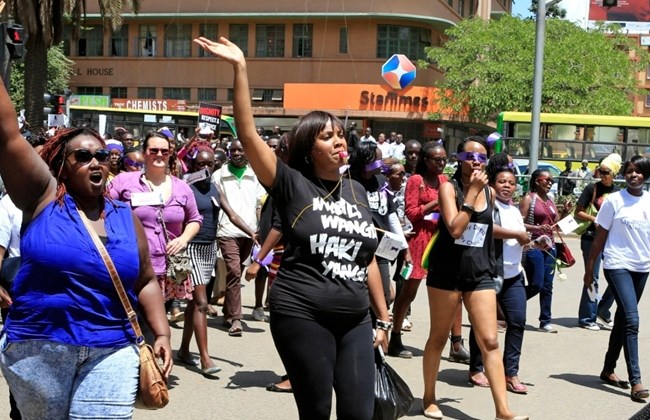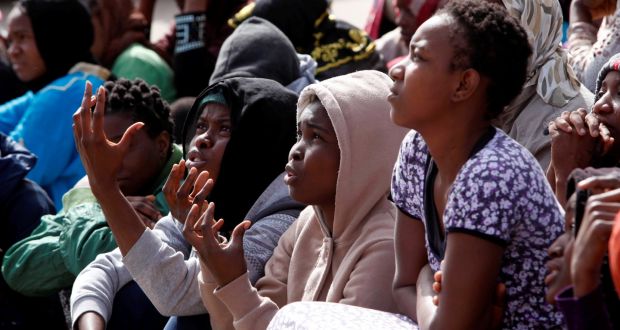Two years ago, women’s dissent in connection with their lowly status in society did not go unnoticed — from the upper political echelons to the household level. During the year women demanded a 50-50 representation in the National Assembly and got the nod. Their request was granted but they still have a fight on their hands — they must win in the constituency polls to make it to the Debating Chamber.

The women also demanded more chances in the Cabinet and other prestigious decisionmaking positions in government. Their voices found listening ears but even here, positions do not come on a silver platter.
Those who contend for top positions in the world of white-collar workers must have requisite qualifications to flaunt. Those who qualify must fight to fight to the top. Well, those are some of the women who hold white collar jobs.
Now let is look at some of the women workers who hold blue collar jobs, some of which are widely despised. Until last year the situation had not changed. At the lowest rung are domestic workers and barmaids.
These too complained bitterly, demanding better standards of living. Perhaps the hardest hit were the domestic workers, some of whom do not get any remuneration at all.
The press railed at the miserable working conditions of domestic workers, some of whom are children. But its coverage did not dig deep enough to expose the extreme situations of nearslavery rather than situation of servitude and exploitation.
Perhaps this year (2017) which has just taken off will see women make progressive inroads in their fight for prosperity. While it is imperative that such cases be condemned, the press did not provide a comprehensive scenario of the working conditions and status of domestic workers.
Therefore, it did not help to improve the welfare of vulnerable domestic workers. The domestic worker’s job is an elusive category that is difficult to be defined. It is even more difficult to protect this kind of worker who is, invariably, invisible at the workplace itself — the private household.
It is near-impossible for labour inspectors, where these are available, to wander into private homes in a quest to speak to domestic workers. The situation is equally difficult for workers’ organisations for collective action.
So, in the case of clandestine situations, which can occur more easily in this type of workplace, workers are even more vulnerable and virtually voiceless. It is common knowledge that domestic work is mainly performed by women, especially the young, naïve girls, some of whom are shunted in from rural villages.
In Tanzania, domestic workers include young boys who are often roped in to mind cattle, pigs or chicken. Domestic workers often include housekeepers, cattle minders, shamba boys, drivers, shop attendants, child minders and others.
Some live-in domestic workers earn as little as 30,000/- a month. The ruse for this anomaly is that the workers eat at their master’s table. It is difficult to give a rough estimate of the number of domestic workers in Tanzania due to the presence of unregulated or clandestine relationships.
Even domestic workers who are the most exploited may not be ready to report their predicament to authorities. Unregistered workers do not appear in official statistics and child domestic workers are ignored by household surveys.

